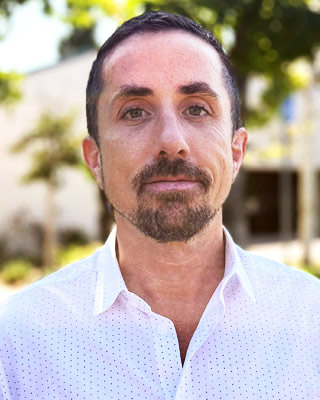Key Takeaways
- Detox is a scientific process that clears substances while restoring balance to the brain and body.
- The brain undergoes neurotransmitter repair, glymphatic system activity, and gradual restoration of neuroplasticity during detox.
- At 12 South Recovery, detox is combined with therapy and medical care to ensure safe recovery and lasting change.
The Body’s Reset Button
Detox is a deeply scientific process where the body works to recalibrate after substance dependence. In the beginning, detox can feel rough because the brain and body resist change, having adapted to functioning with substances. This resistance shows up as withdrawal symptoms like shaking, sweating, mood swings, and trouble sleeping. Even though these effects can be uncomfortable, they signal progress. The brain is starting to repair, the organs are actively filtering, and the body is working hard to restore balance. Detox marks the first step toward recovery and sets the stage for healing.

What is Detox
Detox is the biological process in which the body eliminates drugs, alcohol, or other harmful chemicals while restoring stability. When someone has been using substances heavily, their brain and body adjust to their constant presence. This creates dependence. Once the substances are removed, the systems that were adjusted have to reset.
Detox is about rebalancing neurotransmitters, stabilizing hormone production, and re-establishing healthy organ function. During this stage, withdrawal symptoms surface, which is why detox is safest in a monitored environment with access to medical support.
At 12 South Recovery, detox is the foundation of our addiction treatment programs. It prepares the brain and body for therapy and recovery work.
What is the Difference Between a Cleanse and a Detox
Many people confuse these terms. A cleanse often refers to diet-based methods like juices, herbal teas, or fasting, promoted as ways to “clean out” the system. While these may support digestive health, they do not treat substance dependence.
A detox in addiction treatment is far more scientific. It focuses on restoring balance to the central nervous system and supporting organs such as the liver and kidneys, which actively process toxins. Detox also manages withdrawal symptoms that can be dangerous without medical help.
This distinction is important because only a medically guided detox addresses the needs of people who are dependent on substances.
What Happens to Your Brain When You Detox
The brain is one of the first organs to react when drugs or alcohol are removed. Substances interfere with the balance of neurotransmitters, the chemical messengers that control mood, sleep, movement, and focus.
- During active substance use, neurotransmitters such as dopamine and serotonin are artificially boosted. This creates feelings of pleasure or relief, which reinforces substance use.
- Once detox begins, the brain loses that artificial stimulation. Dopamine drops. Serotonin levels fluctuate. The result is anxiety, irritability, depression, and cravings.
- Over time, detox allows the brain to begin restoring neuroplasticity, the ability to form new neural pathways. This is key for addiction recovery, because it allows healthier behaviors and thought patterns to replace destructive ones.
Clients often experience brain fog during this stage, which can last days or weeks. With time, clarity returns as the brain’s chemistry stabilizes.
What Does Your Body Go Through When You Detox
The body reacts strongly when substances are removed, because nearly every organ has been affected by substance dependence.
- Cardiovascular system: Heart rate and blood pressure fluctuate, sometimes becoming dangerously high.
- Digestive system: Nausea, vomiting, and diarrhea are common as the body pushes toxins out.
- Immune system: The immune response may weaken temporarily, leaving people vulnerable to illness.
- Endocrine system: Hormones that regulate stress, sleep, and energy may be unbalanced, creating mood swings and fatigue.
- Dysregulated stress response: The body has relied on substances to dampen or alter stress hormones. Without them, cortisol spikes, fueling anxiety and irritability.
These reactions make detox uncomfortable, but they also show the body’s systems waking up and beginning to function on their own again.
How Do Toxins Leave the Body
Detox relies on multiple organ systems to clear substances:
- Liver: Processes toxins into less harmful compounds that can be removed. It is the primary detoxification organ.
- Kidneys: Filter blood and remove waste products through urine.
- Lungs: Expel gases and small toxins through breathing.
- Skin: Releases toxins in small amounts through sweat.
- Digestive tract: Eliminates waste and toxins through bowel movements.
The glymphatic system activation is especially important during detox. This brain-specific waste-clearing system works while you sleep, removing harmful buildup like proteins and toxins that impair cognitive function.
How Long Does It Take to Detoxify Your Brain
Recovery of the brain is gradual. Some improvements in focus and mood may appear within a week. However, deeper healing of neurotransmitter systems can take months.
Neuroimaging studies show that brain chemistry begins to stabilize after several weeks of sobriety. Regions involved in decision-making, memory, and emotional regulation gradually recover. For clients in recovery, ongoing therapy supports this process by strengthening healthy neural circuits through behavioral change.
How Long Does Brain Fog Last When Detoxing
Brain fog often appears in the first few days of detox. This fog can make it difficult to think clearly, concentrate, or remember simple tasks.
For some, it passes within a week. For others, it lingers for several weeks depending on the substance used and the length of dependence. Adequate hydration, balanced nutrition, and restorative sleep all help reduce brain fog faster. At 12 South Recovery, clinicians support clients with medication management and therapy to ease this process.
In Which Organ Does Detoxification Take Place
Detox primarily occurs in the liver and kidneys.
- The liver uses enzymes to break down alcohol, drugs, and toxins into safer compounds that can be eliminated. Long-term substance use can damage the liver, slowing this process, which is why medical monitoring is important during detox.
- The kidneys filter blood, balance fluids, and excrete waste products. They play a constant role in maintaining stability during detox.
The lungs, skin, and digestive system also contribute to detoxification, but their roles are secondary.
Addiction Treatment at 12 South Recovery
Detox is the first step, but recovery requires more. At 12 South Recovery, we provide a safe transition from detox into full addiction treatment.
Our services include:
- Medical detox with constant supervision
- Residential care for structured support
- PHP and IOP for flexible therapy while maintaining daily life responsibilities
- Continuing care and alumni programs for ongoing encouragement
Therapies such as CBT, DBT, EMDR, holistic treatment, adventure therapy, and relapse prevention help clients address both psychological and physical aspects of addiction. Our goal is to provide the right environment for stability and long-term recovery.
Find Your Balance at 12 South Recovery
Detox is the body’s reset, where the brain rebalances, organs filter, and healing begins. Though uncomfortable, it marks recovery’s first step. At 12 South Recovery, we provide medical care, therapy, and ongoing support so you never face substance dependence alone. Call 12 South Recovery Today!































